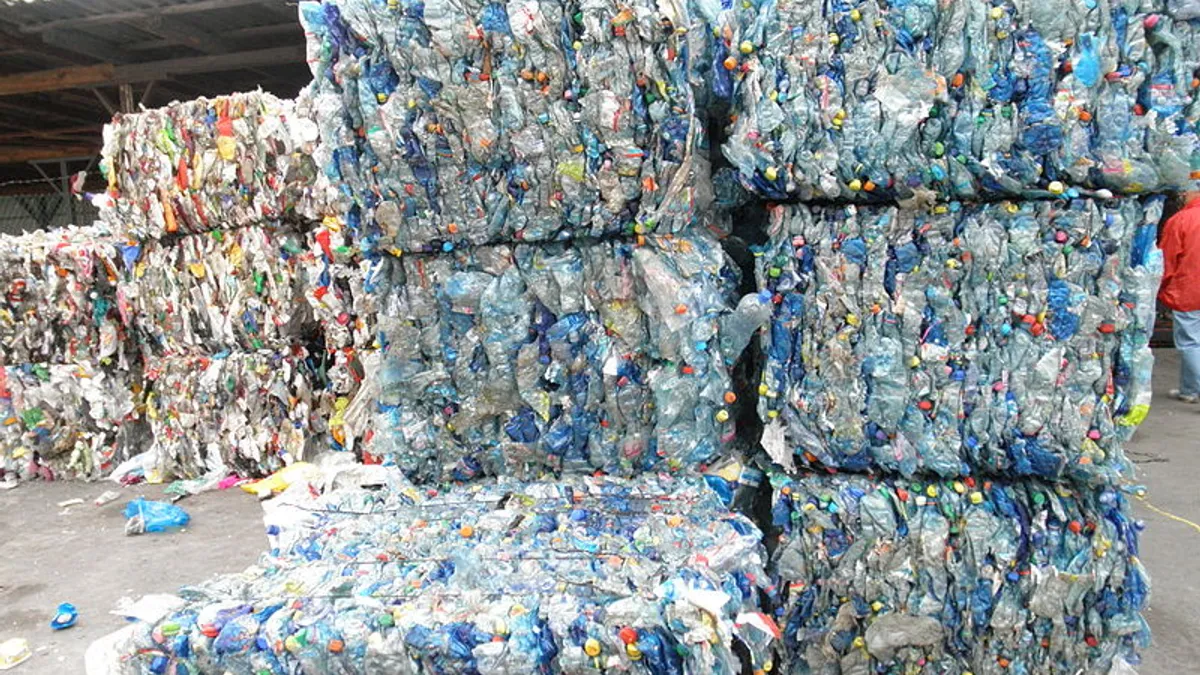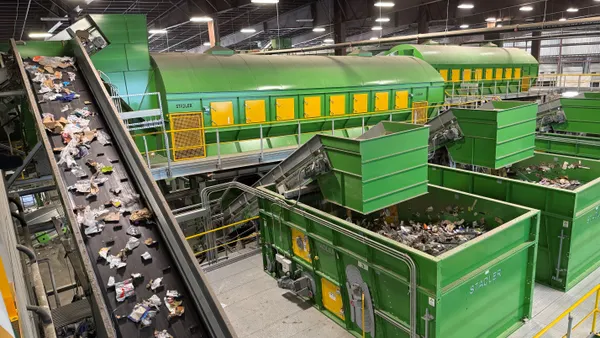Dive Brief:
- IHS Chemical Senior Director Tison Keel noted this month at the Plastics Recycling 2016 conference that a strong polyethylene terephthalate (PET) recycling market will not return any time soon due to two holding patterns: cheap prices for virgin resin PET and a huge oversupply of the material, globally. Both of these conditions are expected to test customers’ commitment to sustainability.
- Keel suggested that PET recyclers "challenge" customers by questioning whether they will reject recyclables over a price difference in an environment where many manufacturers are choosing to keep reaching for sustainability targets, rather than go solely for the best deal. He said of virgin PET producers that there is a need for rationalization, noting, "I really think you will see a couple of units shut down in the next few years."
- Plastics recyclers will be challenged to sell the outcome of their work on more than just price, and to sell more than the materials themselves, said Mathelin Bay Associates Managing Director Phillip Karig as reported in Plastics News.
Dive Insight:
"The pressure on recycling [PET] material, which has already dropped quite substantially over the last six to nine months, is likely to remain and remains a challenge for you and your companies," Keel warned at the conference. While some companies will continue to stand behind their core belief in the value of recycling, survival of the commodities market — particularly plastics — can’t count on this position alone. So processors and sellers are called on to get creative and to diversify.
Diversity can bring at least some stability in a volatile market. For instance, while PET prices fluctuate, by investing in other materials like polypropylene (PP) recyclers are hanging on. But industry experts advise them to diversify in ways other than broadening materials they take in. Diversity means pushing services too, for instance design and greenhouse gas tracking.
“Anybody can sell regrind. Anybody can sell repro ... If there’s anything I can emphasize to you, don’t just sell scrap. Don’t just sell recycled materials. Sell systems," said Karig. "We see that in our business. And we see it every day. That is the way to move along with things."













